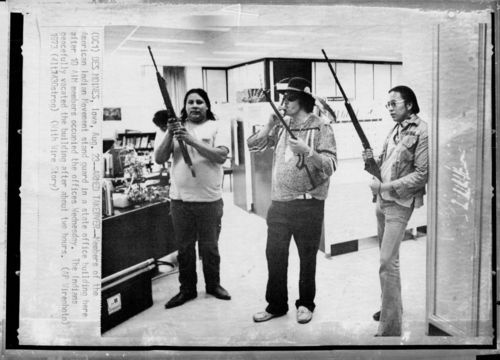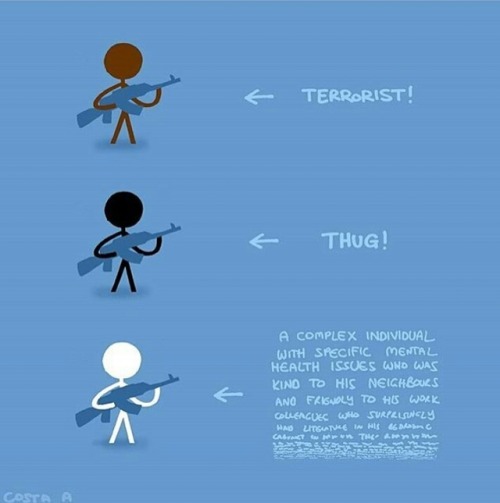#racial profiling
“You Could Be Next” by Caroline Rothstein. All rights reserved by author.
Michael Bennett: “The country that we live in now, sometimes you get profiled for the color of your skin. It’s a tough situation for me."
In a heartfelt letter posted on Twitter on Wednesday, the Seattle Seahawks’ star defensive end revealed the details of a recent encounter with police in Las Vegas – just harrowing stuff – that is all-too-common for African-American males in America.
A police officer put a gun to Bennett’s head, according to the football player I have no reason not to believe, and threatened to blow “my (expletive) head off.” A second officer came over and “forcefully jammed his knee into my back,” Bennett wrote, “making it difficult for me to breathe.”
Young Lords Organization (YLO) Bronx Branch
“Having finally established our base in El Barrio, we opened a new branch in the Bronx. The new office, situated at 949 Longwood Avenue (corner of Kelly St.) was opened early this April and will continue the programs started in El Barrio. More than this, it will begin programs relevant to the people in the Bronx area, it will also serve as a Latin Community News Service called “Palante” in which international revolutionary news will be included, and distributed to the people of the community. This last function of the YLO came about after we found that many of the liberation struggles undertaken by peoples in other countries are not known to people in this country due to press “censorship" of revolutionary news.“ —Lulu Carreras, Lieutenant of Finance. Palante(1970)
Post link
Huey P. Newton (seated on porch) watches Donna Howell and the children of the Intercommunal Youth Institute. Photo: Lauryn Williams, 1972
The Oakland Community School (OCS) was one of the most well-known and well-loved programs of the Black Panther Party. Point Five of the Black Panther Party’s original 1966 Ten Point Platform and Program, emphasized the need to provide an education that, among other things, taught African American and poor people about their history in the United States. To this end, the Oakland Community School became a locale for a small, but powerful group of administrators, educators, and elementary school students whose actions to empower youth and their families challenged existing public education concepts for black and other poor and racially marginalized communities during the 1970s and 1980s.
Historically, however, the educational programs of the BPP started long before the OCS with the vision of the party’s leaders. As early as 1967 Huey Newton and Bobby Seale began speaking to high school youth at San Francisco/Bay Area public schools. In 1969, in U.S. cities where there were strong BPP chapters, liberation schools staffed by volunteer party members opened in storefronts, churches and homes. These after-school programs were created to give academic support to black and other poor youth. These community school programs created a forum for young people to explore a factual history of America and a sense of connection and community.
(viaErika Huggins)
Post link
A Black Panther feeds his son at the “Free Huey” rally in Oakland, California. February 17, 1968.
Post link
(DC1) DES MOINES, Iowa, Aug. 23—ARMED TAKEOVER—Members of the American Indian Movement stand guard in a state office building here after 10 AIM members occupied the offices Wednesday. The Indians peacefully vacated the building after two hours.
The American Indian Movement were a groundbreaking organization for indigenous rights, taking their inspiration from their contemporaries, the Black Panther Party. They boldly challenged the American power structure and demanded self-determination for their people and an end to the genocide they continue to face. Their history is a rich source of knowledge for us to take inspiration from, as well as learn from their mistakes.
Post link
“What are you?” They genuinely ask
Time and time again and yet never ceasing to alarm me
My soul becomes invisible before them,
Skin too dark-too light, too yellow- too red-
Their gazes are chains that rip through my mysterious skin
Imprison me in assumptions
They lash at my skin and tear me away
Until I am nothing but whispers in the wind where I once walked
But I do not live to feed another’s curiosity
What am I?
I am the years of life lived
The steps taken by those who lived before me
I am the song they sing
But more than that I am human
Same as you
I do not wear myself like a name tag
If you must know-
If your questions are on the brink of exploding
Simply ask
“Who are you?”
❤️
Yuri Kochiyama’s life and legacy is a reminder to Asian Americans and to all those who believe in social justice, of a basic value: to show up whenever and wherever injustice occurs and to engage in acts of resistance and solidarity. She did just that throughout her life. I remember how she became a strong voice to highlight the experiences of South Asians, Muslims, Arabs and Sikhs who faced discrimination in the aftermath of 9/11. Film director Jason DaSilva captured Kochiyama relating the post 9/11 dragnet of detentions and deportations to the experiences of Japanese Americans – including her own – who were interned during World War II. It wasn’t surprising that Kochiyama would make these connections. She had been an ally in key moments of struggle before, whether it was supporting political prisoners, calling for the establishment of ethnic studies programs, allying with the Black Power movement, or demanding Puerto Rican sovereignty.
Deepa Iyer is the former director of South Asian Americans Leading Together (SAALT) and a writer and activist.





